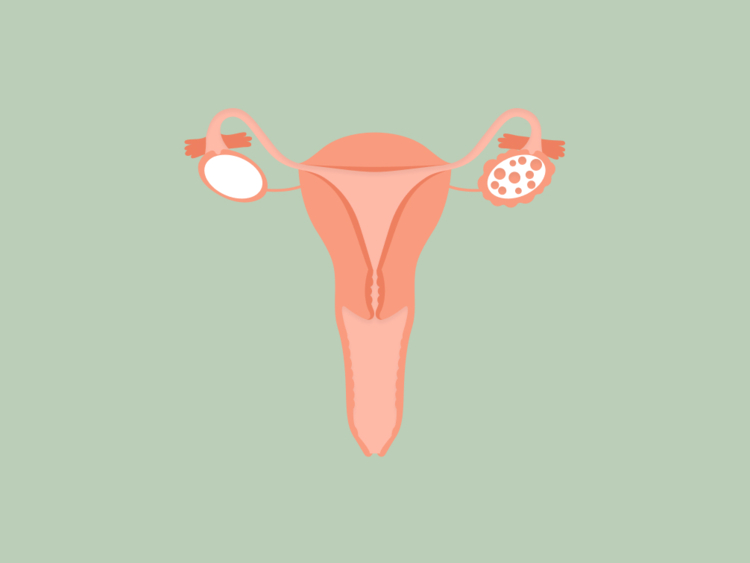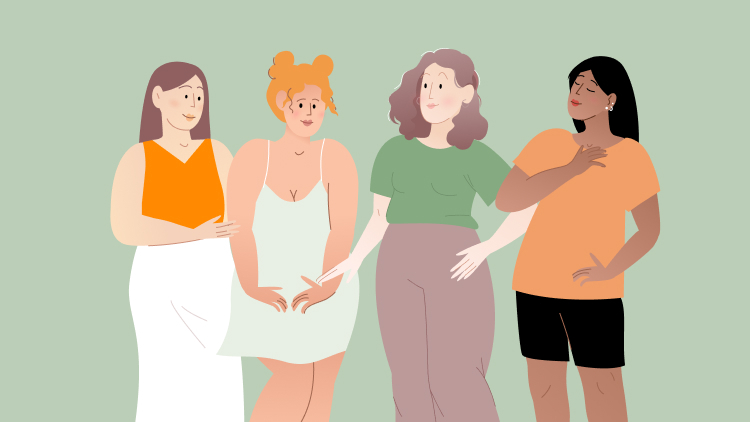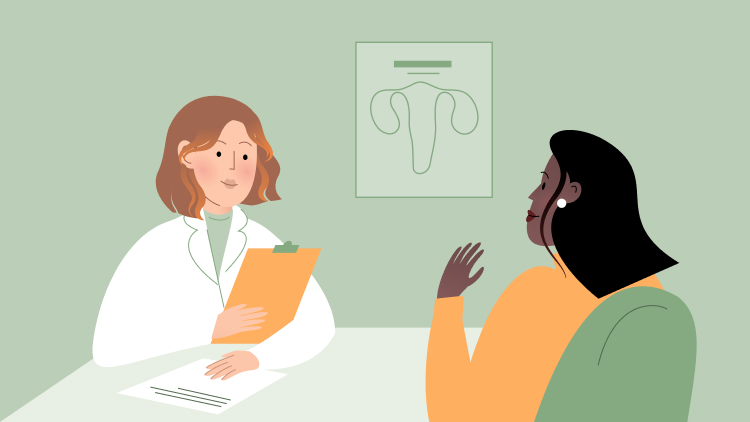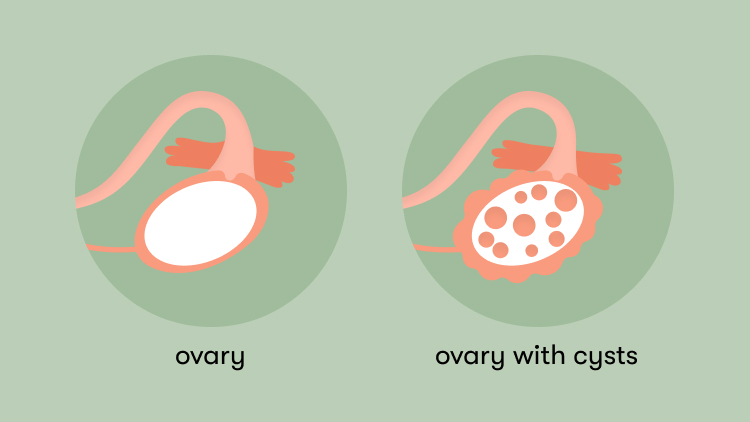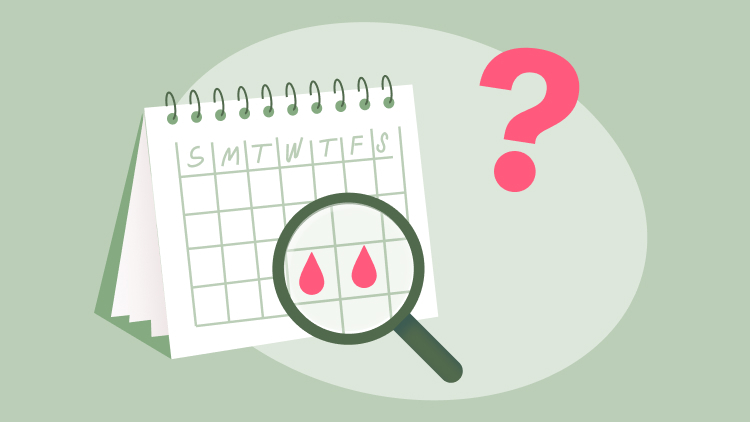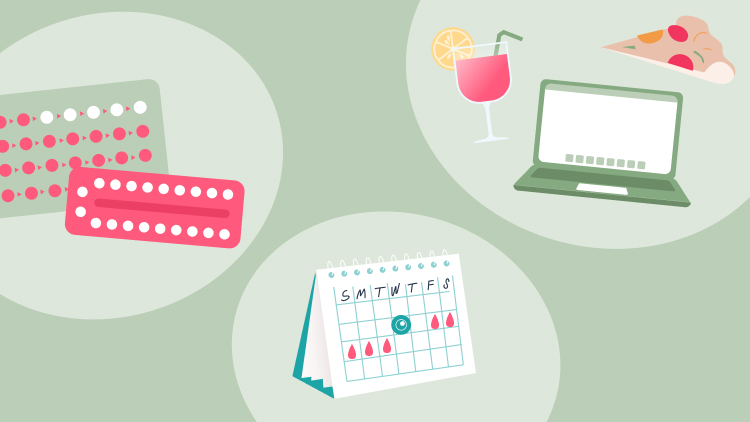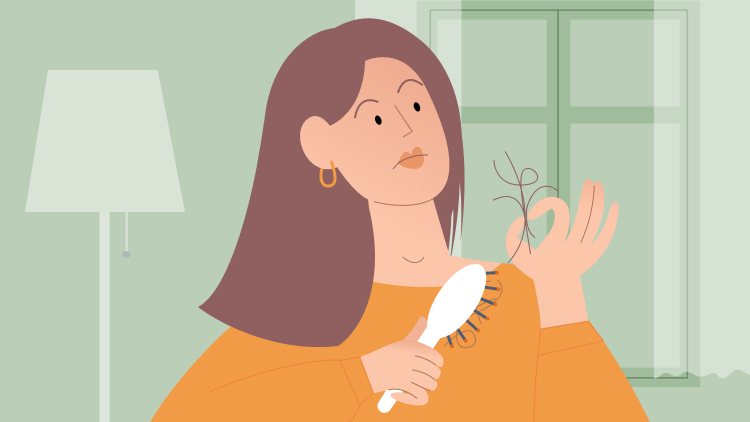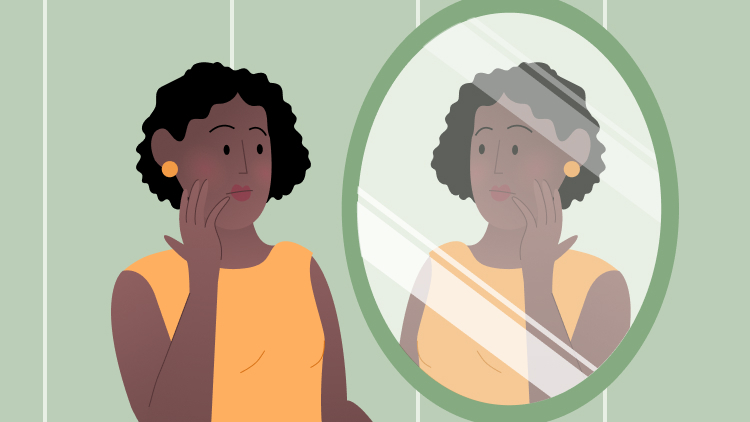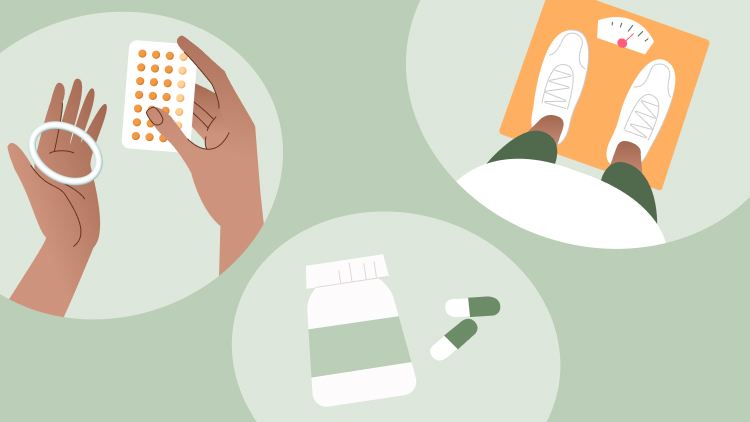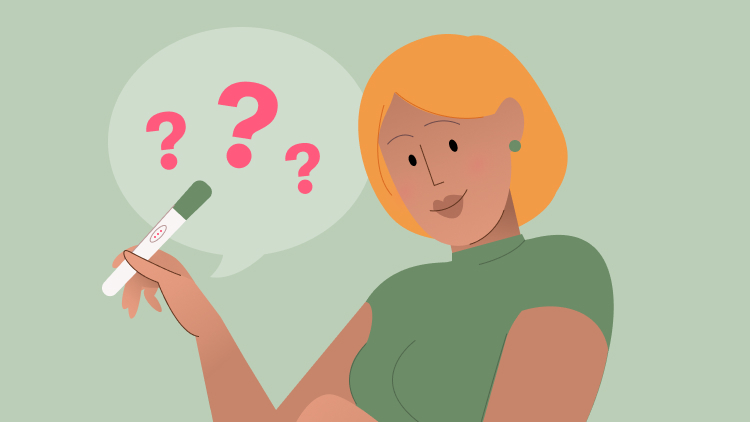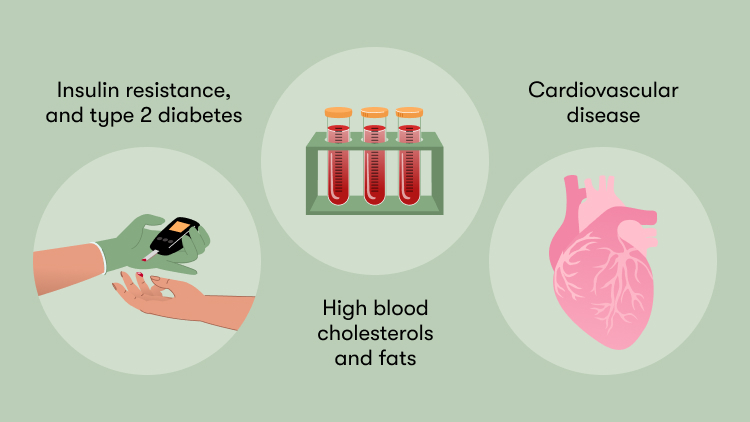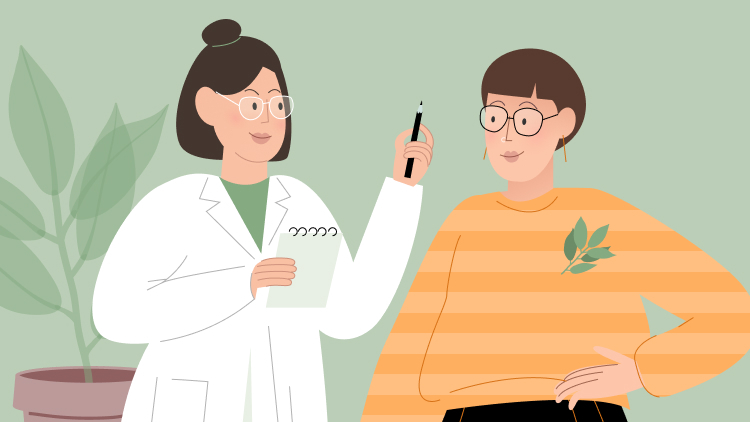PCOS quiz: How much do you know about polycystic ovary syndrome?
Polycystic ovary syndrome (PCOS) is thought to be one of the most common hormone disorders, but finding accurate information about it can be tough. It’s rarely talked about in health class, and the symptoms of PCOS are often mixed up with other conditions like endometriosis.
PCOS happens when you have an imbalance of reproductive hormones. One of the symptoms it can result in is irregular periods — but not everyone with PCOS will experience this. So how much do you know about the condition that affects around one in 10 women globally?
To really understand what PCOS is and how it can affect you, take this quiz. It might help you fill in your knowledge gaps about irregular cycles and give you a few handy facts to take to your next trivia night.
This quiz is designed to help you learn more about PCOS in general, but it is for educational purposes only. The symptoms and treatment options for PCOS can differ for every person, and if you notice any signs of PCOS, you should reach out to your doctor for advice.
Start Quiz
How many women of reproductive age in the United States are estimated to have PCOS?
Next
Which symptoms do doctors look for in order to diagnose PCOS?
High levels of the hormone androgen (which can result in acne and hair growth on your face, arms, and chest)
14%
Next
Do people with PCOS always develop cysts?
Yes, it’s the main way your doctor will diagnose you
16%
No, not everyone will experience this symptom
54%
If you don’t have cysts, it isn’t PCOS
6%
Yes, but cysts might come and go
23%
Next
How exactly can PCOS affect your periods?
Your periods might be far apart, meaning your cycle is long (your cycle is longer than 35 days)
15%
You may often miss your period
9%
Your period may stop altogether
3%
Next
Hormonal birth control
10%
Starting your period early
4%
Next
How can PCOS affect your hair?
It can cause the hair on your body to grow quicker and thicker (called hirsutism)
21%
It can cause the hair on your head to thin
10%
It never impacts your hair at all
3%
A combination of the first two answers
66%
Next
How can PCOS affect your skin?
It can make your skin oily and more prone to acne
82%
It can make your skin very dry
8%
It never affects the skin on your face or body
6%
Next
Which tests do doctors use to help to diagnose PCOS?
There aren’t any tests for PCOS because they don’t know what causes it
21%
Blood tests and ultrasound scans
71%
Next
How can you manage your PCOS symptoms?
Changing your diet and exercise schedule
13%
Hormonal birth control (like the contraceptive pill, patch, or intrauterine device)
8%
Medication that blocks hormones
3%
Next
Can you still get pregnant if you have PCOS?
Yes, it doesn’t affect fertility at all
7%
No, it’s impossible to become pregnant if you have PCOS
5%
Yes, but it might be a bit more difficult
85%
No, you shouldn’t try to conceive if you have PCOS
4%
Next
PCOS has been linked to an increased risk of developing other health complications. Which ones?
Insulin resistance and type 2 diabetes
12%
High blood cholesterols and fats
4%
Cardiovascular disease (conditions affecting your heart and blood vessels)
4%
Next
When should you speak to your doctor if you think you have PCOS?
Only after you’ve had a year of irregular cycles
11%
If you notice a change in your cycle or any other sign of PCOS
74%
Only if you’ve not been able to conceive for six months
6%
Only when your doctor identifies that you might have PCOS during another routine checkup
9%
Next
{"showCounter":true,"counterAnswers":{"-5":{"questionId":-5,"answers":[{"answerId":1,"count":24}]},"-1":{"questionId":-1,"answers":[{"answerId":1,"count":36}]},"0":{"questionId":0,"answers":[{"answerId":1,"count":174}]},"1":{"questionId":1,"answers":[{"answerId":-5,"count":6},{"answerId":-1,"count":9},{"answerId":0,"count":59},{"answerId":1,"count":770},{"answerId":2,"count":1462},{"answerId":3,"count":1853},{"answerId":4,"count":1323},{"answerId":6,"count":1},{"answerId":7,"count":1},{"answerId":20,"count":1},{"answerId":19278731,"count":1}]},"2":{"questionId":2,"answers":[{"answerId":-5,"count":6},{"answerId":-1,"count":9},{"answerId":0,"count":59},{"answerId":1,"count":652},{"answerId":2,"count":606},{"answerId":3,"count":266},{"answerId":4,"count":2615},{"answerId":98,"count":1},{"answerId":19490728,"count":1}]},"3":{"questionId":3,"answers":[{"answerId":-5,"count":4},{"answerId":-1,"count":6},{"answerId":0,"count":19},{"answerId":1,"count":557},{"answerId":2,"count":1863},{"answerId":3,"count":202},{"answerId":4,"count":790}]},"4":{"questionId":4,"answers":[{"answerId":-5,"count":4},{"answerId":-1,"count":6},{"answerId":0,"count":18},{"answerId":1,"count":445},{"answerId":2,"count":258},{"answerId":3,"count":96},{"answerId":4,"count":2179},{"answerId":6,"count":1}]},"5":{"questionId":5,"answers":[{"answerId":-5,"count":4},{"answerId":-1,"count":6},{"answerId":0,"count":20},{"answerId":1,"count":653},{"answerId":2,"count":292},{"answerId":3,"count":1722},{"answerId":4,"count":126}]},"6":{"questionId":6,"answers":[{"answerId":1,"count":544},{"answerId":2,"count":257},{"answerId":3,"count":82},{"answerId":4,"count":1713}]},"7":{"questionId":7,"answers":[{"answerId":1,"count":2011},{"answerId":2,"count":196},{"answerId":3,"count":103},{"answerId":4,"count":139}]},"8":{"questionId":8,"answers":[{"answerId":1,"count":491},{"answerId":2,"count":1676},{"answerId":3,"count":102},{"answerId":4,"count":79}]},"9":{"questionId":9,"answers":[{"answerId":1,"count":290},{"answerId":2,"count":170},{"answerId":3,"count":64},{"answerId":4,"count":1724}]},"10":{"questionId":10,"answers":[{"answerId":1,"count":149},{"answerId":2,"count":102},{"answerId":3,"count":1845},{"answerId":4,"count":83}]},"11":{"questionId":11,"answers":[{"answerId":1,"count":251},{"answerId":2,"count":92},{"answerId":3,"count":82},{"answerId":4,"count":1653}]},"12":{"questionId":12,"answers":[{"answerId":1,"count":211},{"answerId":2,"count":1465},{"answerId":3,"count":112},{"answerId":4,"count":185}]},"19129575":{"questionId":19129575,"answers":[{"answerId":1,"count":1}]},"29288930":{"questionId":29288930,"answers":[{"answerId":1,"count":1}]}},"correctTitle":"Correct Answer","noCorrectTitle":"Not really","allIDCorrect":true,"questions":[{"question":0,"correctAnswer":1,"answerDescription":"<p><span style=\"background-color:transparent;color:#2f2f2f;\">Between 6% and 12% of women of reproductive age are estimated to have PCOS in the United States alone. That\u2019s around 5 million people, making PCOS one of the most common hormonal disorders experienced by women and people who have periods.<\/span><\/p>"},{"question":1,"correctAnswer":3,"answerDescription":"<p><span style=\"background-color:transparent;color:#000000;\">All of these symptoms could be a sign of PCOS, and you need to be exhibiting at least two of them to be diagnosed with PCOS. Symptoms for PCOS can vary from person to person, and they will often start around the time of your first period. However, it might be a few years before you receive a diagnosis.<\/span><\/p>"},{"question":2,"correctAnswer":1,"answerDescription":"<p><span style=\"background-color:transparent;color:#000000;\">This is a fact you\u2019re unlikely to forget because it\u2019s pretty surprising. While some people with PCOS will have polycystic ovaries (ovaries that are larger than they normally would be and contain <\/span><span style=\"background-color:transparent;color:#212b32;\">fluid-filled sacs called follicles that surround your eggs), this isn\u2019t the case for everyone. <\/span><span style=\"background-color:transparent;color:#000000;\">You don\u2019t need to have polycystic ovaries to be diagnosed with PCOS. Take another look at question 2 if you need a recap on what doctors look for when diagnosing PCOS. <\/span><\/p>"},{"question":3,"correctAnswer":3,"answerDescription":"<p><span style=\"background-color:transparent;color:#000000;\">One of the known side effects of PCOS is that it can cause irregular periods. This can include things like missing multiple periods in a row, your period stopping, or having a very long cycle (the average cycle is between 21 and 35 days). The reason for the disruption to your periods is the fact that PCOS is a hormonal imbalance, meaning it can lead to changes in the hormones that are needed for ovulation and can cause irregular cycles.<\/span><\/p>"},{"question":4,"correctAnswer":2,"answerDescription":"<p><span style=\"background-color:transparent;color:#000000;\">It might surprise you to learn that the exact cause of PCOS is currently unknown. Some doctors have highlighted that PCOS can run in families, meaning certain genes may be linked to PCOS.<\/span><\/p>"},{"question":5,"correctAnswer":3,"answerDescription":"<p><span style=\"background-color:transparent;color:#000000;\">PCOS can impact the hair on your head and body in different ways. Some people notice that the hair on their face, chest, arms, and legs grows much quicker and thicker. It\u2019s estimated that around 70% of people with PCOS experience this, and it\u2019s caused by elevated levels of androgens, or \u201cmale\u201d hormones. At the same time, the hair on your head can thin. Some people find changes to their hair distressing to deal with. If this is your experience, don\u2019t hesitate to reach out to your doctor for support. <\/span><\/p>"},{"question":6,"correctAnswer":0,"answerDescription":"<p><span style=\"background-color:transparent;color:#000000;\">Androgens don\u2019t just have the potential to affect your hair. Hormone imbalances can also make your skin feel much oilier and more prone to acne on your face, back, and chest. You can talk about switching up your skin care routine with your doctor, and they may also be able to give you some medical advice on how to manage any acne you develop. <\/span><\/p>"},{"question":7,"correctAnswer":1,"answerDescription":"<p><span style=\"background-color:transparent;color:#2f2f2f;\">To diagnose you with PCOS, your doctor may ask you about any symptoms and if you\u2019re having irregular periods. They might also give you a physical exam (to check for acne or hirsutism). Blood tests can then check your hormone levels, and an ultrasound scan can examine if you have polycystic ovaries. They run these tests in order to rule out any other conditions and to establish if you have two out of three criteria needed to be diagnosed with PCOS. <\/span><\/p>"},{"question":8,"correctAnswer":3,"answerDescription":"<p><span style=\"background-color:transparent;color:#2f2f2f;\">As there\u2019s currently no known cure for PCOS, your doctor will talk you through the different ways you can manage your symptoms. They include <\/span><span style=\"background-color:transparent;color:#000000;\">hormonal birth control, which may help you regulate your cycle. Medication that blocks hormones may balance out your androgen levels and lessen their effects. Research has suggested that eating a varied diet can also help manage PCOS symptoms.<\/span><\/p>"},{"question":9,"correctAnswer":2,"answerDescription":"<p><span style=\"background-color:transparent;color:#000000;\">Hormone imbalances related to PCOS can mean that you may not ovulate every cycle. This can make tracking ovulation when you\u2019re trying to conceive quite difficult. PCOS has been listed as one of the main reasons people struggle to conceive; however, it certainly isn\u2019t impossible. If you\u2019d like to have a baby and you have PCOS, speak to your doctor about the different treatment options that may suit you.<\/span><\/p>"},{"question":10,"correctAnswer":3,"answerDescription":"<p><span style=\"background-color:transparent;color:#231f20;\">If you have PCOS, you\u2019re at an increased risk of developing type 2 diabetes. This is because your body produces insulin but may not be able to use it in the way that it needs to. This excess insulin can mean that you gain weight more easily, which could lead to higher cholesterol, putting you at an increased risk of developing heart disease. All this might sound daunting, but it doesn\u2019t happen to everyone <\/span><span style=\"background-color:transparent;color:#0d405f;\">\u2014<\/span><span style=\"background-color:transparent;color:#231f20;\"> it\u2019s just about increased risk. Don\u2019t be afraid to speak to your doctor about how to manage your symptoms.<\/span><\/p>"},{"question":11,"correctAnswer":1,"answerDescription":"<p><span style=\"background-color:transparent;color:#000000;\">Your doctor is there to answer your questions and reassure you if you\u2019re concerned. If you\u2019ve noticed some of the signs associated with PCOS, don\u2019t hesitate to reach out to them. They may refer you to a PCOS specialist so you can receive expert care. A change to your cycle isn\u2019t a surefire sign you have PCOS, but your doctor will be able to take your medical history, suggest any tests that may help with diagnosis, and offer you support if you\u2019re confused about any symptoms you have.<\/span><\/p>"}]}
You scored:
Knowledge is power, so we hope this quiz has left you feeling more clued up.
Flo is on a mission to empower everyone who has a period to understand more about their bodies and cycles. You deserve to be fully in the know about the amazing things your body does every month. If you’ve been diagnosed with PCOS, or if you think you may have it, then don’t be afraid to reach out to your doctor and use an app like Flo to learn more about the condition. You deserve to be heard and understood.
Next level knowledge and insights
Accurate cycle predictions and knowledge of 100+ medical professionals at your disposal.
Well done. You’re well on your way to becoming a PCOS pro!
Flo is on a mission to empower everyone who has a period to understand more about their bodies and cycles. You deserve to be fully in the know about the amazing things your body does every month. If you’ve been diagnosed with PCOS, or if you think you may have it, then don’t be afraid to reach out to your doctor and use an app like Flo to learn more about the condition. You deserve to be heard and understood.
Next level knowledge and insights
Accurate cycle predictions and knowledge of 100+ medical professionals at your disposal.
